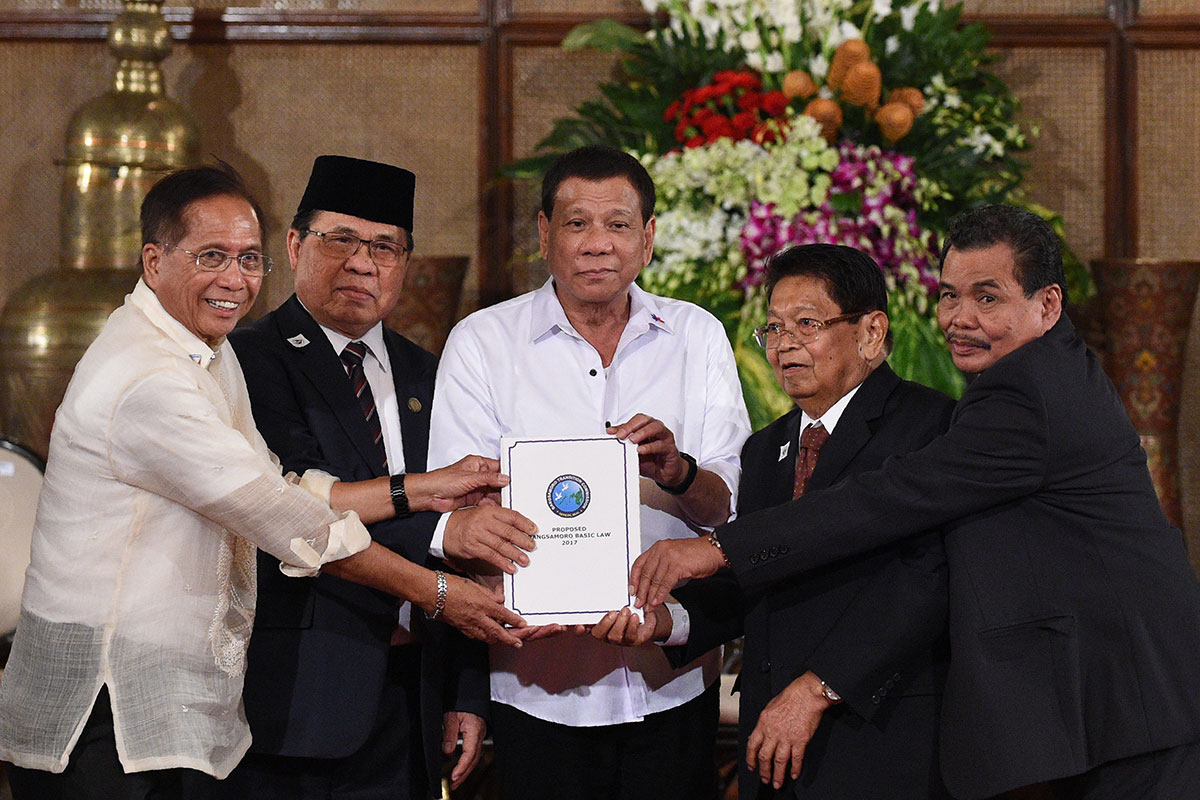Just a few days before the 17th Congress of the Philippines went on break, history was made on 31 May when the Philippines senate unanimously approved the proposed Bangsamoro Basic Law. Hours earlier, the House of Representatives approved its own version of the BBL bill with a 221 to 11 vote.
The BBL seeks to establish a proposed new autonomous political entity known as the Bangsamoro Autonomous Region, replacing the current Autonomous Region in Muslim Mindanao (ARMM). Some have mistaken the fight for BBL as a separatist struggle, however that is not the case. Essentially, the BBL will allow the Bangsamoro to have greater political powers with wider fiscal autonomy while still remaining in the Philippines.
History
The concept of the BBL came about after the Philippines government and the Moro Islamic Liberation Front (MILF) signed a peace deal in March 2014. The MILF is based in Mindanao and is one of the foremost groups fighting for an autonomous region for the Moro people. First founded in 1978 as the Moro National Liberation Front, the group has presence throughout the Bangsamoro region of Mindanao, the Sulu Archipelago, Palawan and other nearby islands. Historically, the MILF and other Islamic groups have fought using violent means to demand for independence. However, in 2010, the MILF said that it would instead pursue a plan for an autonomous region under the Philippines instead of separation from the country.

Source: Various sources
In 2014, the Philippine government’s chief negotiator Miriam Coronel Ferer and MILF chief negotiator Mohagher Iqbal signed a peace agreement in Kuala Lumpur. This peace deal led to the conception of the Bangsamoro state. Stakeholders submitted a document to the Philippines’ Congress with a detailed plan for the Bangsamoro Autonomous Region to replace the current Autonomous Region in Muslim Mindanao. The document would spell out the territory it would occupy and the details of the BBL. Progress in passing the law in congress however hit a snag in 2015 when the Mamasapano clash took place. The Mamasapano clash was an “misencounter” between the Philippines National Police and MILF rebels that left over 60 people dead.
Peace in Bangsamoro
Speaking to local media, the chief of the Armed Forces of the Philippines welcomed the passage of the BBL saying that the laws has a “direct correlation to peace”. Over the past few decades, Bangsamoro has been a hotbed of terrorism and extremist activity. Terrorist organisations would exploit the Moro conflict and insurgency as a way to recruit members. Among the organisations active there include Abu Sayyaf and the Bangsamoro Islamic Freedom Fighters. The passage of the BBL would now reduce antagonisms between citizens and the central government, giving less room for other groups to exploit the sentiment of the people. Furthermore, the passage of the BBL will negate grievances of the insurgency groups there. If proper autonomy is granted to the region, insurgency groups would have no reason to engage with the central government as their grievances could be brought up with the local government.
However, there are arguments that the passage of the BBL does not guarantee the elimination of extremism. Whatever version of the BBL that Duterte ends up signing as law will still have to adhere to the country’s constitution. If there are limitations in the BBL, it could be used as ammunition against the MILF. It needs to be reminded that groups such as Abu Sayyaf and Dawlah Islamiyah came into prominence after mainstream groups such as the MILF were seen to be ineffective in the struggle for self-determination.
Currently there are two versions of the BBL, the House of Representative version and the Senate one. Both houses of Congress need to iron out the differences in the bicameral conference committee meetings before it is passed into law by President Rodrigo Duterte. Muslim groups have already voiced their dissatisfaction with the version passed by the House of Representatives arguing that it does not guarantee autonomy and self-determination. Assemblyman Zia Alonto Adion even argued that the BBL passed in congress has been watered down and points out that the final version could give the region less powers than it currently has under the Autonomous Region in Muslim Mindanao set up.
If the Philippines government is serious about bringing peace to the Bangsamoro region then it will need to give the region full autonomy. Any watered-down promises will only give more reason for extremists to resort to violence once again.
